Important Dates
Papers Submission deadline September 10th, 2025
Notification of Acceptance October 10th, 2025
Camera-Ready papers Submission October 25th, 2025
Conference Date December 9th -10th, 2025
Submission
Researchers and PHD students on electronics and communication systems, are invited to submit a paper …
Paper Submission
Manuscript should be submitted via online submission system at
Format « English is the language of the conference » :
Papers should not exceed 6 pages.
Only PDF files will be accepted. A maximum file size of 2MB for all uploaded papers will only be accepted.
Download Call for paper_ICAECCS-2025
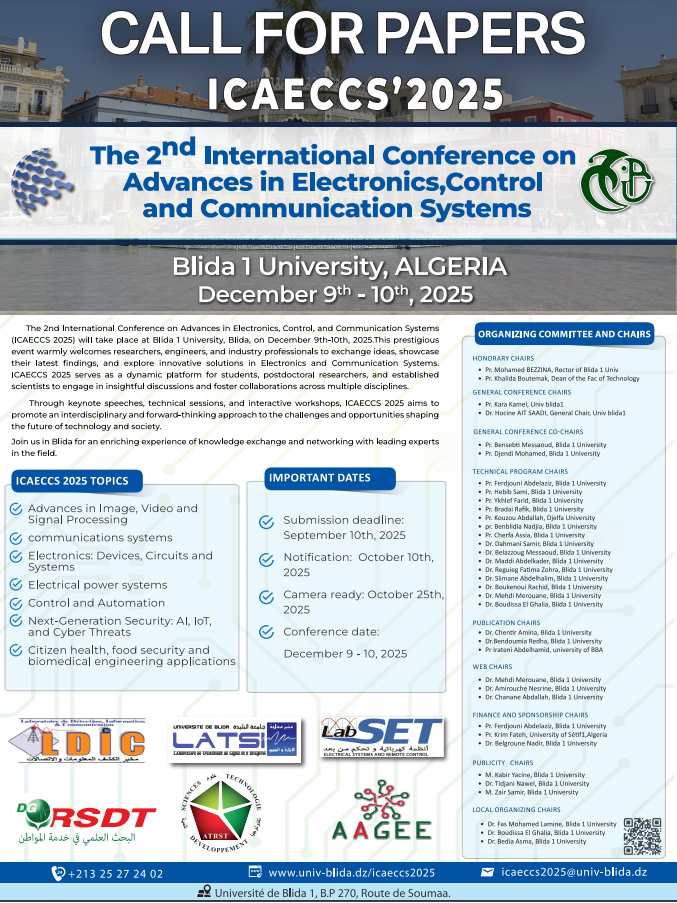
The 2nd International Conference on Advances in Electronics, Control and Communication Systems (ICAECCS2025)
The 2nd International Conference on Advances in Electronics, Control, and Communication Systems (ICAECCS 2025) will take place at Blida 1 University, Blida, on December 9th-10th, 2025.
This prestigious event warmly welcomes researchers, engineers, and industry professionals to exchange ideas, showcase their latest findings, and explore innovative solutions in Electronics and Communication Systems. ICAECCS 2025 serves as a dynamic platform for students, postdoctoral researchers, and established scientists to engage in insightful discussions and foster collaborations across multiple disciplines.
The conference will cover a diverse range of cutting-edge topics, including:
- Advances in Image, Video, and Signal Processing
- Communication Systems
- Electronics: Devices, Circuits, and Systems
- Electrical Power Systems
- Control and Automation
- Next-Generation Security: AI, IoT, and Cyber Threats
- Citizen Health, Food Security, and Biomedical Engineering Applications
Through keynote speeches, technical sessions, and interactive workshops, ICAECCS 2025 aims to promote an interdisciplinary and forward-thinking approach to the challenges and opportunities shaping the future of technology and society.
Join us in Blida for an enriching experience of knowledge exchange and networking with leading experts in the field.
Email: icaeccs2025@univ-blida.dz
Author Guide Line
Researchers and PHD students on electronics and communication systems, are invited to submit a paper. The paper should contain a complete description of the proposed contribution along with results, suitably framed in the related state of the art.
Important Dates
Papers Submission deadline September 10 th, 2025
Notification of Acceptance October 10th, 2025
Camera-Ready papers Submission October 25th, 2025
Conference Date December 9th -10th, 2025
The ICAECCS 2025 sessions et posters
- Track1: Advances in Image, Video and Signal Processing (Chair : Dr. Reguieg Fatima Zohra)
Track2: Telecommunications and wave propagation (Chair : Pr. Hebib Sami)
Track3 :Electronics: Devices, Circuits and Systems (Chairs : Dr. Dahmani Samir, Dr. Slimane Abdelhalim)
Track4:Electrical power systems (Chairs : Pr. Bradai Rafik, Dr. Belazzoug Messaoud, Dr. Boukenoui Rachid)
Track5 :Control and Automation (Chairs : Pr. Ferdjouni Abdelaziz, Dr. Maddi Abdelkader)
Track 6 : Next-Generation Security: AI, IoT, and Cyber Threats (Chairs Dr. MEHDI Merouane & Pr.YKHLEF Farid)
Track 7:Citizen health, food security and biomedical engineering applications (Chairs: Dr. Boudissa El Ghalia,)
Submission
All full papers submitted to ICAECCS’2025 must be written in English and prepared using the official IEEE Conference Paper Template. Manuscripts are limited to six (6) pages and must be original, unpublished, and not under review or accepted for publication elsewhere.
Authors are invited to submit their full papers in PDF format via the Microsoft CMT system using the following link:
URL: https://cmt3.research.microsoft.com/User/Login?ReturnUrl=%2F
All submissions will undergo a semi-blind peer review by at least two reviewers, and will be evaluated based on clarity, relevance, originality, and contribution to the field. Submissions will also be checked for plagiarism, and any paper found to violate ethical standards will be automatically rejected.
To be included in the ICAECCS’2025 Conference Proceedings, at least one author of each accepted paper must register for the conference, following the registration guidelines provided on the official website. Furthermore, presentation by one of the authors during the conference is mandatory for the paper to be published.
Accepted papers will be submitted for inclusion into IEEE Xplore, subject to meeting IEEE Xplore’s scope and quality requirements.
The submission deadline is September 10th, 2025.
the official IEEE Conference Paper Template can be downloaded from the following links:
Word template (MS Word .doc format)
Authors are invited to submit papers on the following ICAECCS’2025 topics, including but not limited to:
Conference topics
Les différents topics/tracks et leurs détails.
https://www.univ-blida.dz/icaeccs2025/#sessions
Acknowledgment
The Microsoft CMT service was used for managing the peer-reviewing process for this conference. This service was provided for free by Microsoft and they bore all expenses, including costs for Azure cloud services as well as for software development and support.
The conference will feature four keynote sessions presented by distinguished invited speakers.
Further details will be announced soon.
- Pr. ALLEL HADJALI, Ecole Nationale Supérieure de Mécanique et d’Aérotechnique, Poitiers, France, “ON DEMPSTER-SHAFER THEORY IN MULTISENSOR DATA FUSION”.
- Pr. MEROUANE DEBBAH, Technology Innovation Institute, Abu Dhabi, United Arab Emirates, “WHERE IS 6G HEADING?”
- Pr. MOHAMED DJEMAI, INSA Hauts-de-France, “HYBRIDE SYSTEMS ON NON-UNIFORM TIME DOMAINE : NEW APPROACH USING TIME SCALE”.
Titre : Hybride systems on non-uniform time domaine : new approach using Time scale
Allel HADJALI
Professor in Computer Science
E-mail: allel.hadjali@ensma.fr
Title: On Dempster-Shafter Theory in Multisensor Data Fusion
Short Description: Multisensor data fusion is the process of combining observations from a number of different sensors to provide a robust and complete description of an environment or process of interest. Multisensor data fusion finds wide application in many areas, such as Robotics (object recognition, environment mapping, and localization), Satellite and aerial imaging, Medical imaging, Sonar and radar and imaging for aerospace applications, IoT platforms and Artificial Intelligence. As sensors are most often used under conditions that induce difficulties at different levels (- measurements may be imprecise, erroneous, incomplete, or ill suited to the problem – prior knowledge be incomplete, poorly defined, and may not fit any more with the reality encountered, especially when the context is evolving – observations may be ambiguous, either in space or in time), it is therefore necessary to define formalisms that are sufficiently general to represent and combine all types of information that may be encountered. In this talk, we present the foundations of Dempster-Shafer theory (named also belief functions or evidence theory) for the data fusion purpose. It represents a general formalism in the sense that (i) it allows modeling both uncertainty and imprecision; (ii) it is a generalization of both probabilistic and possibilistic models. We discuss the different evidential combination rules both from the semantic and computational sides. The important issues related to managing the level of conflict of the sources and to scalability are addressed as well.
Keywords: Data fusion, Multisensor data, Dempster-Shafer theory, Belief functions, Uncertainty, Ambiguity, Combination rules, Degree of conflict, Decision making.
Short Bio: Allel HADJALI is Full Professor in Computer Science at the National Engineering School for Mechanics and Aerotechnics (ISAE-ENSMA), Poitiers, France. He is a member of the Data & Model Engineering research team of the Laboratory of Computer Science and Automatic Control for Systems (LIAS/ISEA-ENSMA). His main area of research falls within Data Science field, and more specifically, the research topics related to Data Exploitation & Analysis (sensor data, semantic data, incomplete data), Knowledge Extraction and Recommendation. His current research interests include Soft Computing and Computational Intelligence in Databases (Cooperative/Intelligent Databases, Data fusion/integration, Data quality, Data Uncertainty, Data Privacy and Trust), Machine Learning-based Recommendation, Approximate/Uncertain Reasoning with applications to Artificial Intelligence and Information Systems. His recent works were published in well-known journals (e.g., Applied Soft Computing, Knowledge and Information Systems, Fuzzy Sets and Systems, International Journal of Intelligent Systems, Journal of Intelligent Information Systems and Annals of Mathematics and Artificial Intelligence). He also published several papers in International Conferences (ESWC, ICTAI, Fuzz-IEEE, DEXA, FQAS, SUM, ISMIS, IPMU, CoopIS, IFSA, ACM SAC, ICWS, SCC, ER, VLDB and EDBT (demo papers)). He co-organized several special sessions on “Advances in Soft Computing Applied to Databases and Information Systems” in conjunction with EUSFLAT (2009 and 2011) Conference, “Advances in Bipolarity in Databases” in conjunction with EUSFLAT (2013), “Advances in Data Management in the Context of Incomplete Databases” in conjunction with IFSA (2015) Conference, “Uncertainty in Cloud Computing” in conjunction with DEXA (2017) . He co-organized also several special issues in well-known journals, among them, “Flexible Queries in Information Systems” in Journal of Intelligent Information Systems (2009), “On Advances in Soft Computing Applied to Databases and Information Systems” in Fuzzy Sets and Systems Journal (2011), “Post LFA 2015 Conference” in Fuzzy Sets and Systems Journal (2017), “Uncertain Cloud” in International Journal of Approximate Reasoning (2019). The complete list of his publications is available in http://www.lias-lab.fr/members/allelhadjali.
Title: Where is 6G heading?
Abstract: he standardization for 5G wireless systems is maturing and researchers around the world have already started to look at beyond the 5G systems. Although the next G gossip is at a premature stage, this talk aims to provide an overview of the vision, challenges and key enabling technologies envisioned by the wireless community. The talk will mostly focus on the fundamental technologies and will discuss potential research directions to meet the requirements of next generation wireless systems.
Bio: Mérouane Debbah is Chief Researcher at the Technology Innovation Institute in Abu Dhabi. He is a Professor at Centralesupelec and an Adjunct Professor with the Department of Machine Learning at the Mohamed Bin Zayed University of Artificial Intelligence. He received the M.Sc. and Ph.D. degrees from the Ecole Normale Supérieure Paris-Saclay, France. He was with Motorola Labs, Saclay, France, from 1999 to 2002, and also with the Vienna Research Center for Telecommunications, Vienna, Austria, until 2003. From 2003 to 2007, he was an Assistant Professor with the Mobile Communications Department, Institut Eurecom, Sophia Antipolis, France. In 2007, he was appointed Full Professor at CentraleSupelec, Gif-sur-Yvette, France. From 2007 to 2014, he was the Director of the Alcatel-Lucent Chair on Flexible Radio. From 2014 to 2021, he was Vice-President of the Huawei France Research Center. He was jointly the director of the Mathematical and Algorithmic Sciences Lab as well as the director of the Lagrange Mathematical and Computing Research Center. Since 2021, he is leading the AI & Digital Science Research centers at the Technology Innovation Institute. He has managed 8 EU projects and more than 24 national and international projects. His research interests lie in fundamental mathematics, algorithms, statistics, information, and communication sciences research. He is an IEEE Fellow, a WWRF Fellow, a Eurasip Fellow, an AAIA Fellow, an Institut Louis Bachelier Fellow and a Membre émérite SEE. He was a recipient of the ERC Grant MORE (Advanced Mathematical Tools for Complex Network Engineering) from 2012 to 2017. He was a recipient of the Mario Boella Award in 2005, the IEEE Glavieux Prize Award in 2011, the Qualcomm Innovation Prize Award in 2012, the 2019 IEEE Radio Communications Committee Technical Recognition Award and the 2020 SEE Blondel Medal. He received more than 20 best paper awards, among which the 2007 IEEE GLOBECOM Best Paper Award, the Wi-Opt 2009 Best Paper Award, the 2010 Newcom++ Best Paper Award, the WUN CogCom Best Paper 2012 and 2013 Award, the 2014 WCNC Best Paper Award, the 2015 ICC Best Paper Award, the 2015 IEEE Communications Society Leonard G. Abraham Prize, the 2015 IEEE Communications Society Fred W. Ellersick Prize, the 2016 IEEE Communications Society Best Tutorial Paper Award, the 2016 European Wireless Best Paper Award, the 2017 Eurasip Best Paper Award, the 2018 IEEE Marconi Prize Paper Award, the 2019 IEEE Communications Society Young Author Best Paper Award, the 2021 Eurasip Best Paper Award, the 2021 IEEE Marconi Prize Paper Award, the 2022 IEEE Communications Society Outstanding Paper Award, the 2022 ICC Best paper Award as well as the Valuetools 2007, Valuetools 2008, CrownCom 2009, Valuetools 2012, SAM 2014, and 2017 IEEE Sweden VT-COM-IT Joint Chapter best student paper awards. He is an Associate Editor-in-Chief of the journal Random Matrix: Theory and Applications. He was an Associate Area Editor and Senior Area Editor of the IEEE TRANSACTIONS ON SIGNAL PROCESSING from 2011 to 2013 and from 2013 to 2014, respectively. From 2021 to 2022, he serves as an IEEE Signal Processing Society Distinguished Industry Speaker
Track 5 : Control and Automation
Welcome to the Control and AutomationTrack, which aims to bring together academic and industrial researchers to present their original research findings and practical achievements in the area of systems modelling and control automation.
Topics of interest of Control and Automation track include, but are not limited to:
- Advanced control
- Modelling, identification and control systems
- Design, simulation and control systems
- Neural networks for modelling and control of dynamic systems
- Fuzzy logic modelling and control of dynamic systems
- Metaheuristic optimization for the design of control systems
- Hybrid and embedded control systems
- Stability and adaptive control of nonlinear systems
- Optimal and predictive control
- Sliding mode control
- Fractional order systems
- Fault diagnostics and fault tolerant control
- Robotics, industrial vision and automation
- Manipulators and mobile robots
- Continuum robots
- Aerial and underwater vehicles
Track 6: Next-Generation Security: AI, IoT, and Cyber Threats (Chairs Dr. MEHDI Merouane & Pr. YKHLEF Farid)
Scope
The Security, Privacy and Trust track is concerned with the important role of information security in today’s digital world. The focus of the track is on advances in information security technologies, new attacks and hacker exploits, artificial intelligence and deep learning for information security, digital crime and forensics, intrusion detection and incident response, malware and attack analysis, privacy and data breaches, IoT vulnerabilities, emerging cyber risks, highlighting both the challenges and innovative solutions shaping the future of cybersecurity.
Topics
- Information, network and applications security
- Information security technologies
- Encryption, steganography, and VPN technologies
- Wireless network security
- Internet-of-Thing, fog computing and cloud security and privacy
- AI-powered IoT systems: Enhancing device intelligence and automation.
- Security Analytics and Data mining
- Information security management and governance
- Cryptographic support in trusted computing
- Privacy, Traceability, and Anonymity
- Blockchains and distributed ledger security
- Machine Learning (Deep Learning, Reinforcement Learning, Statistical Learning, etc.)
- Artificial Intelligence Applications in security, sustainability, healthcare, smart cities, medicine, games, among others.
- AI and cloud computing
- Big Data Management and Application
- Big Data Toolkits
- Collaborative ThreatDetectionusing Big Data Analysis Analytics
Track 7 : Citizen health, food security and biomedical engineering applications (Chairs Pr. Cherfa Assia & Dr. Boudissa El Ghalia)
Scope :
Many problems facing health professionals today are of paramount importance to engineers, as they involve the fundamental aspect of device and systems analysis, design, and practical application – all of which lie at the heart of processes that are fundamental to engineering practice. Biomedical engineering serves the healthcare delivery team that seeks new solutions for the difficult problems confronting modern society. The track’s main purpose is to highlight the basic role of biomedical engineering, and provide a broad overview of technology’s role in shaping our modern healthcare system. Biomedical Engineering fuses principles of engineering with those of biological and medical sciences for the design and development of devices, systems, and technologies applied to healthcare. The field of this track covers biomedical imaging, biomedical signal treatment, biological instruments and biosensors, health monitoring systems, automation in healthcare, wearable technology, and artificial intelligence enabled healthcare systems.
Topics include but are not limited to:
- Automation in Healthcare
- Artificial Intelligence in medical devices
- Biomedical and Health Informatics
- Biomedical imaging and image processing
- Biomedical signal treatment (detection, compression, acquisition, visualization)
- Bioinstrumentation
- Health monitoring systems
- Wearable Technology
- Diagnostic systems
- Nanotechnology
Track1: Advances in Image, Vidéo and Signal Processing (Chair : Dr. Reguieg Fatima Zohra)
Scope : The hasty advancements in image, video, and signal processing, have significantly impacted industries in various fields, such as healthcare, autonomous systems, telecommunications, and multimedia applications. This track explores cutting-edge AI-driven techniques, deep learning models, and computational imaging methods that enhance efficiency, accuracy, and real-time performance. Key topics include high-performance video compression, super-resolution, object detection, and biomedical signal analysis, addressing challenges in medical diagnosis, speech processing, and wireless communications. A major focus is on real-time and low-latency processing, through edge AI and neuromorphic computing, enabling applications in autonomous navigation, smart surveillance, and IoT. This track also fosters interdisciplinary research, integrating quantum computing, multimodal AI, and hardware-accelerated processing to push technological boundaries. By identifying emerging trends and challenges, this track aims to shape the future of high-efficiency imaging, video analytics, and next-generation signal processing techniques, bridging the gap between theoretical research and real-world applications.
List of topics covered under Advances in Image, Video, and Signal Processing:
- Image Processing
- Image Enhancement and Restoration (Denoising, Super-Resolution, Deblurring)
- Image Segmentation and Feature Extraction (Deep Learning-Based, Edge Detection, Region-Based)
- Image Compression and Coding (JPEG, JPEG2000, AI-Based Compression)
- Computational Photography and Imaging (HDR Imaging, Light Field Processing)
- 3D and Multispectral Imaging (Hyperspectral Imaging, LiDAR, MRI)
- Medical Image Processing (X-ray, CT Scan, MRI, Ultrasound Image Analysis)
- AI-Driven Image Synthesis (GANs, Diffusion Models, Style Transfer)
- Forensic and Biometric Image Analysis (Face Recognition, Fingerprint Recognition, Image Authentication)
- Video Processing
- Video Compression and Streaming (HEVC, VVC, AV1, AI-Based Video Encoding)
- Object Detection and Tracking in Videos (YOLO, SSD, Transformer-Based Models)
- Action Recognition and Video Understanding (Pose Estimation, Human Activity Recognition)
- Motion Estimation and Optical Flow Analysis
- Super-Resolution and Frame Interpolation in Video Enhancement
- Deep Learning for Video Analytics (Video Captioning, Anomaly Detection)
- 3D and Holographic Video Processing (VR, AR, Volumetric Video)
- AI-Powered Video Editing and Generation (Deepfake Detection, Video Inpainting)
- Signal Processing
- Speech and Audio Processing (Speech Enhancement, Noise Reduction, Speaker Recognition)
- Adaptive Filtering and Noise Cancellation
- Multimodal Signal Processing (Fusion of Image, Audio, and Sensor Data)
- Quantum and Neuromorphic Signal Processing
- AI, Machine Learning and Deep Learning in Signal Processing
- Emerging Trends and Future Directions
- Quantum Computing for Image and Signal Processing
- Neuromorphic and Bio-Inspired Computing
- Edge AI and Real-Time Processing
- Multi-Modal AI (Fusion of Text, Image, Video, and Audio Signals)
- Energy-Efficient Processing for Embedded Systems
- Security and Privacy in Image and Signal Processing
Track2 : Communication systems (Chair : Pr. Hebib Sami)
Scope :
This session aims to bring together researchers, engineers, and practitioners to present and discuss
recent innovations, trends, and challenges in the design, development, and deployment of modern
communication systems. It covers both theoretical advancements and practical implementations in
wireless, optical, and wired communication technologies. Emphasis is placed on emerging paradigms
such as next-generation networks, Internet of Things (IoT), green communications, antenna and
propagation technologies, and AI-driven communication protocols.
Topics include but are not limited to:
● 5G and 6G Communication Systems
● Wireless and Mobile Communications
● Antenna Design, Modeling, and Measurement
● Electromagnetic Wave Propagation and Channel Modeling
● Smart Antennas and Beamforming
● MIMO and Massive MIMO Systems
● Optical Communication and Photonic Networks
● Satellite and Space Communications
● Cognitive Radio and Dynamic Spectrum Access
● Software-Defined Networking (SDN) and Network Function Virtualization (NFV)
● Green and Sustainable Communication Systems
● Channel Coding and Error Control Techniques
● Communication Theory and Information Theory
● AI/ML Applications in Communication Systems
● Ultra-Reliable Low-Latency Communications (URLLC)
● Wireless Sensor Networks
● Underwater and Body Area Communications
Track 3 : Electronics: Devices, Circuits and Systems (Chairs : Dr. Dahmani Samir, Dr. Slimane Abdelhalim)
Scope
This track explores advancements in electronic devices, circuit design, and integrated systems. It covers theoretical developments, practical implementations, and emerging technologies in semiconductor devices, analog, digital, and mixed-signal circuits, as well as electronic systems for various applications such as communication, sensing, computing, and power management.
Topics
Contributions are welcomed in, but not limited to, the following areas:
- a) Electronic Devices
Semiconductor devices (MOSFETs, BJTs, FinFETs, etc.)
Semiconductor devices (MOSFETs, BJTs, FinFETs, etc.)
- Emerging devices (MEMS, NEMS, etc.)
-
- Device modeling and simulation
-
- Power semiconductor devices
-
- Reliability and aging effects
- b) Circuit Design
Analog and mixed-signal circuits
RF and millimeter-wave circuits
Low-power and high-performance circuit design
Data converters (ADC, DAC)
Integrated sensor interfaces
Power management circuits (DC-DC converters, LDOs)
Noise and variability in circuits
- c) Electronic Systems
- System-on-Chip (SoC) and System-in-Package (SiP)
-
- High-speed and low-power computing systems
-
- Hardware security and cryptographic circuits
-
- Neuromorphic and bio-inspired circuits
-
- IoT and embedded systems
-
- FPGA-based designs and reconfigurable computing
Track 4 : Electrical power systems
Scope : This track’s primary aim is to promote research, innovation, discussion and knowledge exchange among the power engineering community. As we all know by now, in the contemporary world, the global energy industry is facing unprecedented challenges. On one hand, accelerating the transition to sustainable and renewable energy sources is considered one of the most effective approaches for mitigating environmental pollution and reducing dependence on fossil fuels by diversifying energy supplies. On the other hand, there are high expectations for technologies such as: new energy generation, management and optimization, artificial intelligence, power electronic equipment, and other advancements in power systems, as they possess immense potential to shape an energy and power ecosystem that is green, pollution-free, highly efficient, and cost-effective.
The target public of this track includes all interested people from academia, industry and government, particularly, researchers, scholars, PhD students, policy-makers, professionals and other specialists interested in all topics related to Electrical Power Systems, to join us in sharing their valuable insights.
Topics include but are not limited to:
- Power electronics and applications
- Facts
- Modelling, fault diagnostics and control of electric machines
- Intelligent system applications
- Renewable energies (Photovoltaic energy, Wind energy, Geothermal energy, hydropower, ocean energy….., etc)
- Hydrogen storage and fuel cell technologies
- Modelling, fault diagnostics and control of renewable energy systems
- Energy management and optimization
- Energy transportation
- Energy storage systems
- Power quality
- Hybrid energy systems
- Smart grids, Microgrids and distribution networks
- Electric Traction
Presentation Tips
Materials Provided by the Presenters:
- Oral Presentation: PowerPoint or PDF files
- Poster Presentation: PowerPointfiles
Duration of Each Presentation:
- Regular Oral Session: 15 Minutes of Presentation including Q&A.
Oral Presentation
A maximum of 15 minutes total, including speaking time and discussion. Please make sure your presentation is well timed. Please keep in mind that the program is full and that the speaker after you would like their allocated time available to them.
You can use USB flash drive (memory stick), make sure you scanned viruses in your own computer. Each speaker is required to meet her/his session chair in the corresponding session rooms 10 minutes before the session starts and copy the slide file (PPT or PDF) to the computer. It is suggested that you email a copy of your presentation to your personal inbox as a backup.
Movies: If your PowerPoint files contain movies please make sure that they are well formatted and connected to the main files.
Poster Presentation
- Number sticker will be put on the ground under each stand. Please refer to conference program which will be announced later to locate your poster number and find the corresponding stand.
- Please sign in on session chair’s form before your session starts. At least one author should stand by the poster for (most of the time) the duration of his/her poster session. This is essential to present your research work to anyone interested in and make sure your presence is verified by session chair.
- Poster stand will be provided onsite. Please put up the poster at least 15 mins before your session starts and remove your poster at the end of session. Unclaimed poster will be disposed at the end of session. Of course, our staff will be happy to assist you onsite.
Note: The following time arrangement is for reference only. In case any absence or some presentations are less than 15 minutes, please come before your session starts.
Committees
Honorary Chairs
- Pr. Mohamed BEZZINA, Recteur de l’Université BLIDA 1
- Pr. Khalida Boutemak, Doyenne de la Faculté de Téchnologie
Technical Program Chairs
- Dr. Belazzoug Messaoud
- Pr. Hebib Sami
- Pr. Ferdjouni Abdelaziz
- Pr. Ykhlef Farid
- Pr. Bradai Rafik
- Dr. Reguieg Fatima Zohra
- Dr. Dahmani Samir
- Dr. Slimane Abdelhalim
- Dr. Boukenoui Rachid
- Dr. Mehdi Merouane
- Dr. Boudissa El Ghalia
- Pr. Cherfa Assia
- Dr. Maddi Abdelkader
- Pr. Kouzou Abdallah, Université de Djelfa
General Conference Chairs
- Pr. Kara Kamel
- Dr. Ait Saadi Hocine
Publication Chairs
-
Dr.Chentir Amina
-
Dr.Bendoumia Redha
Publicity Chairs
- M. Kebir Yacine
- M. Zair Samir
- Dr. Lamamri Abdelkader
- Pr. Irateni Abdelhamid, Université de BBA
Local Arrangements Chairs
- Dr. Fas Mohamed Lamine
- Dr. Boudissa El Ghalia
- Dr. Bedia Asma
General Conference Co-Chair
- Pr. Bensebti Messaoud
- Pr. Djendi Mohamed
Finance and Sponsorship Chairs
- Pr. Ferdjouni Abdelaziz
- Pr. Krim Fateh
- Dr. Belgroune Nadir
International Scientific Committee
Registration fees
To attend the conference, please refer to the registration fees outlined below:
|
Category |
Non-IEEE member |
IEEE member |
|
Student |
15000 DZD |
10000 DZD |
|
Other |
25000 DZD |
20000 DZD |
|
Non-author |
35000 DZD |
30000 DZD |
Information regarding registration deadlines and payment methods will be provided soon
Service Areas
| Conference location | Position |
| Cercle militaire BLIDA | https://goo.gl/maps/ |
The conference activities will be hosted at the Military Hotel, located in the city of Blida.
| Recommended Hotels | site | adress | Tel | Maps position | Distance from Conference location |
| Clean Hotel | https://www.cleanhotelblida. |
Rue Khaled Bey 01 Sidi-Yakoub Blida, Algerie | Tel : +213 (0) 25 23 10 95 +213 (0) 25 23 10 92 |
https://goo.gl/maps/ |
2.5 km |
| Al Ansar Hotel | https://www.facebook.com/ |
boulevard Amara youcef, Blida, Algeria | 025 32 61 89 | https://goo.gl/maps/ |
3.5 km |
| BN Hotel | https://www.facebook.com/ |
BN Hotel, 03 Cité, Ouled Yaïch 09015, blida, Algeria, Blida, Algeria | 0541 84 69 08 | https://goo.gl/maps/ |
7 km |
| KT Hotel | http://www.kthotels.com/ | 75, cité japonaise, oulad yaïch, blida, 09000, algeria | Tel +213 (0)7 70 99 99 91 | https://goo.gl/maps/ |
18 km |
Organizers
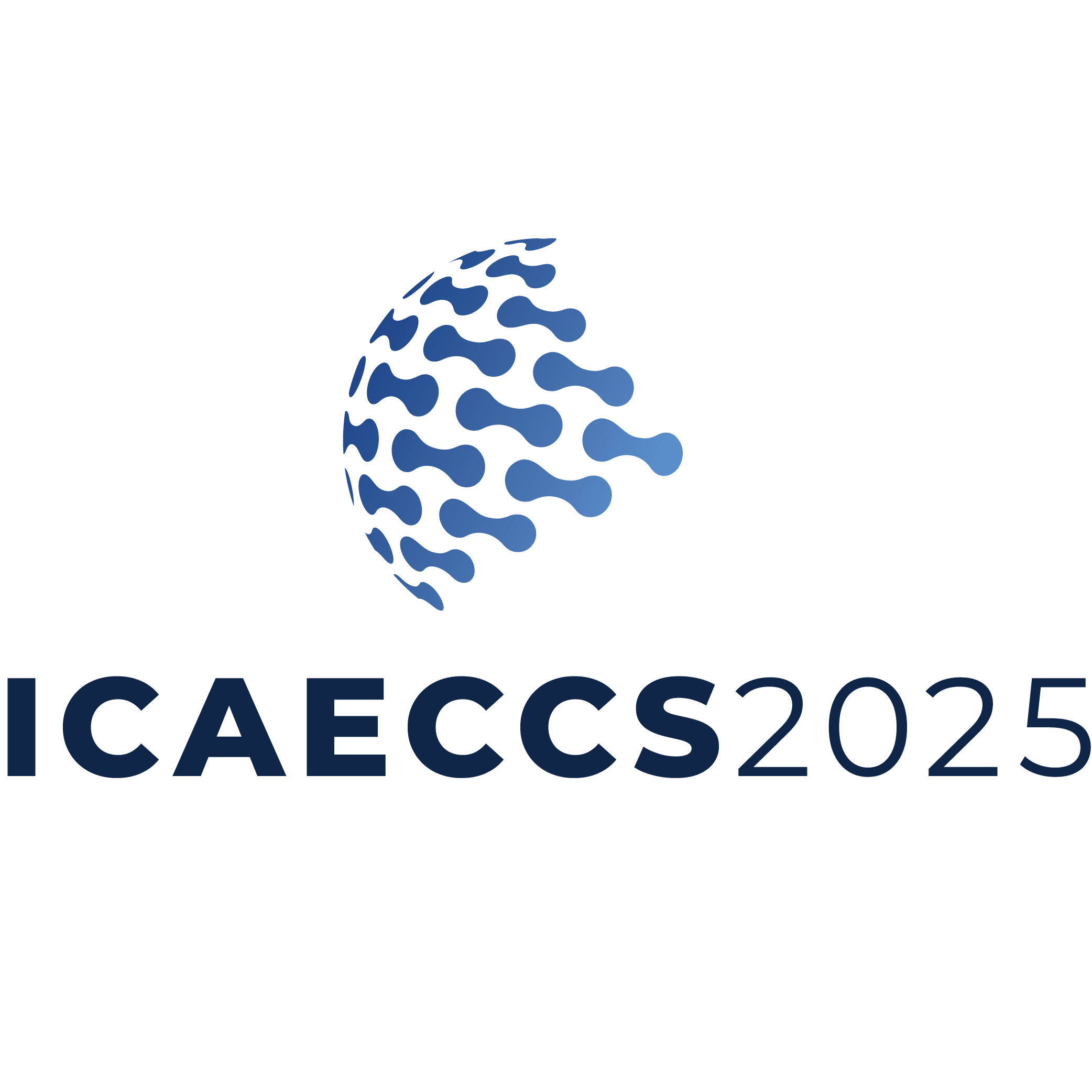
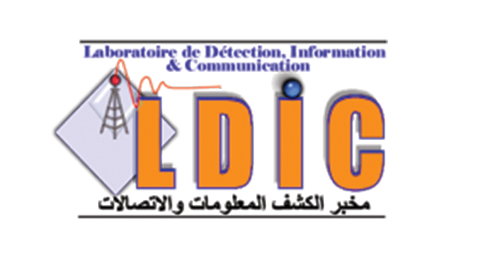

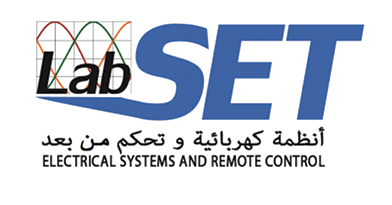
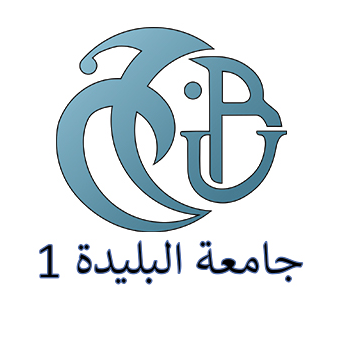
Technical Sponsors
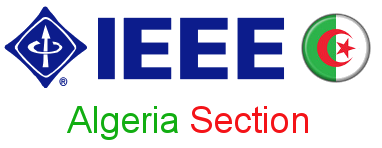
Get In Touch With ICAECCS 2025
Tel: +213 25 27 24 02
Email: icaeccs2025@univ-blida.dz
Adress: BP 270, Road of Soumaa, Blida, Algeria.